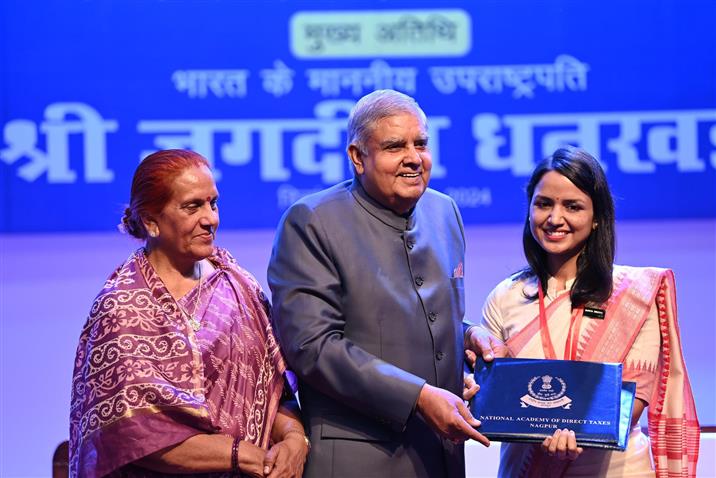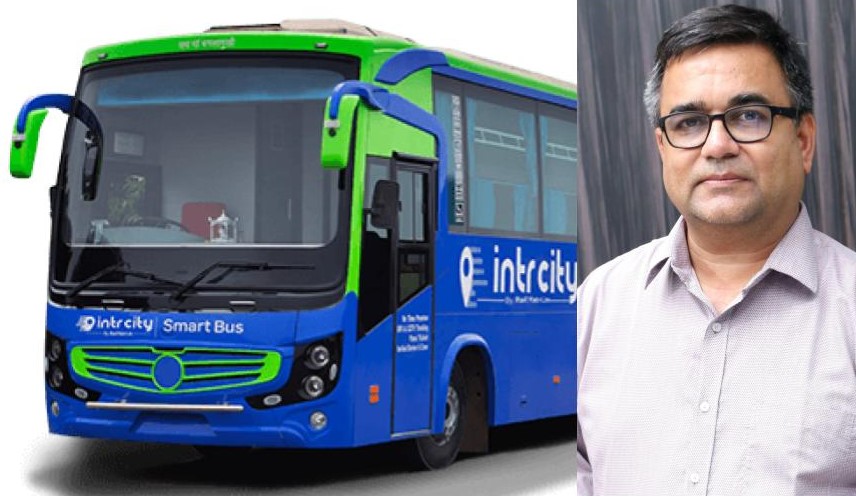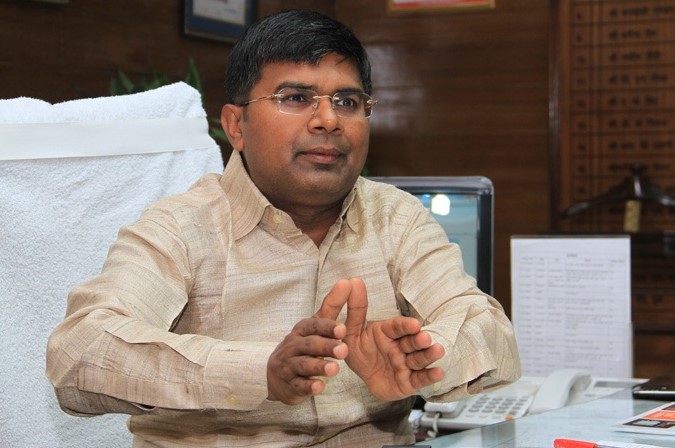Vice President Jagdeep Dhankhar on Monday said power corridors have been duly neutralised of corrupt elements and corruption is no longer a password to opportunity, job or a contract, but is a passage to jail. Corruption no longer dictates the administration, Dhankhar said addressing the valediction ceremony of the 76th batch of the Indian Revenue Service (IRS) at the National Academy of Direct Taxes in Maharashtra’s Nagpur city.
India is no longer a sleeping giant but is fast moving towards becoming a global power, he said.
“During G-20 presidency, we became the voice of the global south. Such powerful combination of nations. Look at the GDP and population they represent and their voice was not being heard. It is now at a prominent platform, thanks to Bharat and our visionary leadership,” he said.
Emphasising the use of technology to the IRS officers, Dhankhar said cash handling has been a menace in the society and technology discourages informal handling of cash, which is extremely damaging to the society.
Steps like these have brought about unprecedented transparency and accountability within the system now, aligning with the norm of zero tolerance to corruption in Bharat today, he said.
“I wouldn’t make much reflections on corruption today. But one thing is for sure now power corridors have been duly neutralised of corrupt elements. Corruption is no longer a password to opportunity or a job or a contract. Corruption is a passage to a place that is jail. There is a paradigm shift and corruption no longer dictates our administration now,” he said.
At one time after independence, India was among the poorest countries in the world, Dhankhar noted.
Even in 1991, India’s economy was smaller than that of cities like Paris and London. That was the size of India, which was known as ‘sone ki chidya’ at one point of time. But today, India’s economy is much ahead of the economy of France and the UK, he said.
In a matter of two years, India will be ahead of Japan and Germany, the vice president said.
“This traversing has taken place on account of policy formulations which suit our nation and on the account of vision that has been executed and on account of bureaucracy that has brought it about,” he said.
Dhankhar said India is the fastest growing major economy in the world, with an average GDP growth rate of 6.5 to 7 per cent.
Bharat is on the rise as never before and the rise is unstoppable, he said.
India is now a land of hope and possibility, a favourite global destination of investment and opportunity, he said, adding that the country is preparing itself as a future global superpower.
“The skeptics of our exponential development and unstoppable rise need to step out of the bubble to experience the environment of hope and possibility,” he said.
Dhankhar also said the tax system is now amazingly friendly and handholding.
It has been transformed from tax collectors to tax facilitators. Taxpayers are mightily and surprisingly impressed with quick refunds and timely addressing of concerns, he said.
Stressing the need to focus on concealed transactions and money, he said tax administrations are challenged to keep the pace, answer the taxpayers’ new needs and expectations while keeping tax fraud at bay.
Dhankhar said new technologies such as Artificial Intelligence and advanced analytics are improving tax governance and helping curb tax evasion. Most importantly, this enhances the taxpayer’s trust in the system, which in turn encourages greater compliance.
” Blockchain technology is an advanced database mechanism that allows transparent information sharing within a business network. A blockchain database stores data in blocks that are linked together in a chain. As future custodians of this evolving tax regime, I urge each one of you to embrace technology as an enabler of positive change,” he said.
The vice president asked the officers to work tirelessly towards achieving everyone’s collective aspirations.
“Empower taxpayers with information, foster trust through transparency, and uphold the highest standards of integrity in your professional conduct,” he said.




